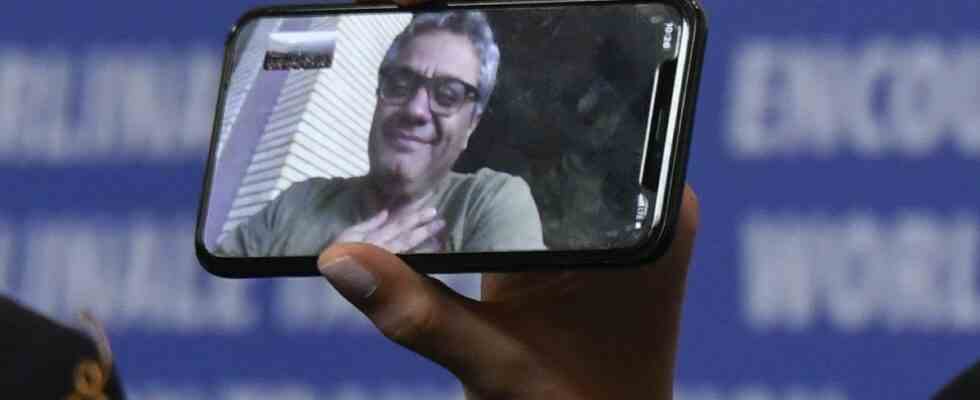With Jafar Panahi, who was arrested on Monday, three prominent Iranian filmmakers were arrested within a few days. Panahi’s film “The Circle” (2000) won the Golden Lion at the Venice Film Festival, in 2015 he won with it “Taxi Tehran” the Berlinale. Panahi’s arrest follows that of an old companion Mohammed Rasoulof; he was arrested on Saturday together with Mostafa Al-Ahmad – because of an appeal against violence. “As far as I know, Panahi only ended up there because he wanted to find out about them after Rasoulof and Mostafa Al-Ahmad were arrested,” says Hamburg producer Mani Tilgner. Mani Tilgner has been working with Rasoulof for more than ten years, most recently he worked on the production with Cosmopol-Film “But there is no such thing as evil” involved, with which Rasoulof won the Golden Bear at the Berlinale in 2020.
This wave of arrests is no coincidence – it is the result of a tense situation in Iran that began with the presidential elections last summer and is fueled by the current turmoil in the global economy. In June 2021, the ultra-conservative Ebrahim Raisi Successor to President Hassan Rouhani, who was not allowed to stand again after two terms in office. Most of the candidates who had applied last summer were not allowed to stand in the election – the selection was small in the end. And so was the turnout.
The Iranian film community has been warned not to support the protests. But some did
The country has been badly affected by the pandemic, but in recent months it has been the global economy that has been causing Iran problems – inflation is high and food prices have risen sharply. This led to waves of protest that differed from those of previous years – because the more conservative population in the countryside and in the small towns had stayed out of them. This time it was different. Then, at the end of May, disaster struck: a high-rise office building in Abadan, the metropolitan tower, collapsed and buried dozens of people, ending up with more than thirty dead. Politicians were held accountable in Abadan, but the protests intensified and were directed against the leadership of the Islamic Republic. The demonstrators saw not only negligence but also corruption as the reason for the collapse of the tower. The regime is under pressure.
Culture Minister Mohammad Mehdi Esmaili warned the Iranian film community not to support the protests. But some did. The arrests must certainly be seen in this context, says Tilgner. On his Twitter account, Rasoulof repeatedly drew attention to arrested artists and human rights activists. Tilgner has the closest contact with Mohammad Rasoulof. The change in the social climate and increasing state repression are something “that other Iranians mirror to me,” he says.
Jafar Panahi after his release in 2010 – now he is back in prison.
(Photo: AP/AP)
Filmmakers like Mohammad Rasoulof and Jafar Panahi also had a tough time when arch-conservative Mahmoud Ahmadinejad was president from 2005 to 2013, both of whom have been tried and banned from working since protests in 2009. Panahi, after being banned from filmmaking, made a film provocatively titled ‘This Is Not a Movie’, which then screened in Cannes. Their films have both made star directors at western festivals, but are not allowed to be shown in Iran.
“But there is no evil”, the Berlinale winner, is about the death penalty – and Mohammad Rasoulof does not see himself as a political activist. “It’s actually about basic human rights,” says Tilgner, “but the portrayal of the living conditions of the people in Iran is quickly defined by the authorities as a political act.” Tilgner doesn’t know what will happen next, what the consequences of the allegations will be – in Iran, he explains, there is often a mixture of arbitrariness and the law at work.

